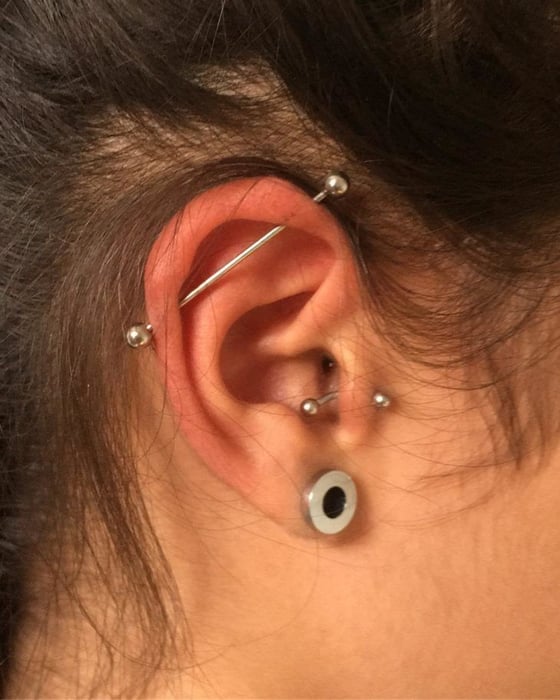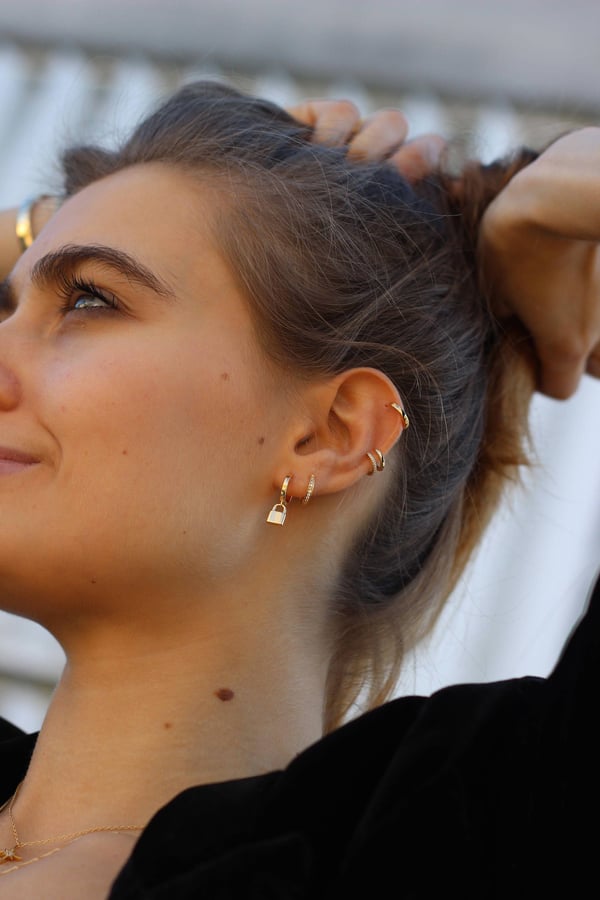More and more people are interested in performing procedures such as body piercing and tattoos, but what ends up being a stylish and cool differential in social life, in the formal environment can be a reason for some headaches.
This is due to the thinking of some more conservative companies, with a more formal work dress code, mainly. They believe that this type of prop can tarnish your company’s reputation, as it alludes to an alternative style that does not represent its purpose in the market, resulting in the alienation of customers. However, in recent years, many companies have not only made the acceptability of piercing more flexible in their employees, but have even changed the dress code to a more casual and informal style, without so much bureaucracy. But, believe me, losing a job because of your appearance happens more often than inattentive eyes can see. Therefore, in this article we will talk about what is allowed and what is not allowed by law in the workplace, when it comes to piercing.

After all, what is provided for in the law about piercing at work?
By law, every company has the directive power, what does that mean? In theory, the directive power is the power to make decisions that involve the conduct of the business managed by it, directing business practices as it deems most convenient for its reality. This allows the employer to require the employee to comply with orders and perform functions inherent to his employment contract and, in return, pays his respective remuneration. But this right is only valid when it comes to the direct exercise of the work developed by the employee, when they may consist of general rules of conduct of the company. But this same right cannot exceed the limit of discrimination, involving cases in which prejudiced or discriminatory conduct to the detriment of the employee. By law, the company cannot have restrictions on gender, race, age or any topic that hurts or generates discrimination, according to the Federal Constitution. Therefore, injustice in the selection is usually veiled. It is not acceptable, for example, that the company does not hire pregnant women or women of gestational age to join the staff of its company or that, for example, it forces homosexual people to dress differently from the rest of the company.

What can be charged in relation to appearance?
Legally there is no impediment for a company to ask the employee for adjustments in appearance, as long as it is not in a discriminatory, vexatious or excessively rigorous way. The only requirement that the company can make in relation to appearance is if it is directly related to the impairment of the performance of the activity for which the employee was hired. It fits into these cases, for example, not requiring the candidate to have short hair, but it may be a rule for him to have to tie it up when working in a kitchen. You can’t rule out a babysitting candidate because of her color or weight, but you can require her not to wear small earrings or any piece that the child can swallow. Or even in the Army, which requires a lot of physical and psychological effort to perform the function and not everyone has this willingness. In the case of stewardess, the issue of weight needs to be analyzed for safety reasons.
These are some cases, but often the line between what discriminates and common sense can be thin and unclear. Discriminatory practice is still very common and some requirements cause controversy. However, if the use of piercing is not directly linked to the exercise of professional activity, it is not possible for the employer to require the employee not to use piercing when it is possible to preserve it in safe conditions for the performance of work.
Piercing at work and dress code: how to adapt?
If you work in an informal environment that involves creativity, the use of piercings does not need to have much restriction, on the contrary, they represent the expression of your identity and who you are in the world, of your preferences. Now, in more conventional environments, they are often asked to give priority to piercings such as in the ear or in places that do not appear (navel, for example) or to wear more discreet jewelry.
Pieces with small diamonds, silver or gold are the most suitable for the piercing to become as discreet and delicate as possible.
Or for those who have had a hole for a longer time and with no danger of closing, the way is to take it out during office hours. The important thing is to maintain common sense in professional environments and always be aware of the company’s dress code , to know what is allowed or not.

And the piercing in the job interview: can it or not?
It’s one thing to already be hired, it’s another to be looking for a new opportunity in the job market. In these cases, we know that the first impression is the one that lasts, even before the person gets to know you better. The choice to exhibit a piercing has to be based on the context of the vacancy, the hiring company and also the professional’s area of expertise. It is common in some segments to be natural in the use of adornments, as it is a more popular area for young professionals. We can highlight the area of Communication, Marketing and IT. However, in more traditional areas such as Medicine, Law, and Engineering, tattoos and piercings suffer some resistance. In this second case, if you have a piercing, the ideal is to bet on more discreet places, such as the ear and nose, which are well accepted or remove during the period you are in the interview or even at work.
